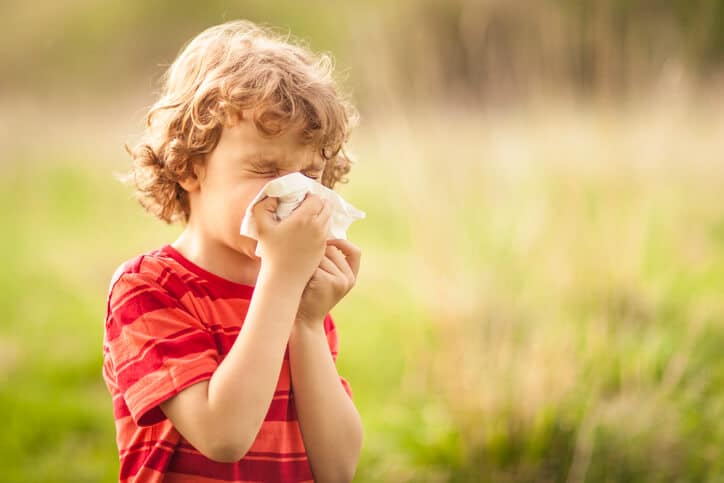As summer approaches, there’s nothing like feeling the sun on your skin and enjoying the great outdoors. But for allergy sufferers, the beauty of spring and summer often comes with the discomfort and annoyance of seasonal allergies.
One of the most common allergies is grass allergy, which can make it difficult to enjoy outdoor festivities. In this blog post, we’ll provide you with a comprehensive guide to help you identify if you’re allergic to grass, the causes of grass allergies, and the available treatment options.
 How Can You Tell if You Are Allergic to Grass?
How Can You Tell if You Are Allergic to Grass?
The symptoms of grass allergies can range from mild to severe and can quickly turn a fun outdoor activity into a miserable experience. Symptoms may include:
- Sneezing
- Runny or stuffy nose
- Itchy or watery eyes
- Scratchy throat
- Difficulty breathing
- Hives or rashes
- Asthma attacks
It’s important to note that grass allergy symptoms can often overlap with other allergens such as pollen, dust, or mold. If you suspect you have a grass allergy, it’s best to consult with your doctor or an allergy specialist to identify the cause and find the best treatment.
What is the Most Common Grass Allergy?
Grass allergies are caused by the pollen released by grass during the spring and summer seasons. The immune system sees this pollen as an invader and attacks it, causing various allergic reactions. Grass allergy triggers vary from person to person, and not all types of grass may trigger an allergic reaction.
The most common types of grass that cause allergies are Bermuda grass, Bluegrass, and Timothy grass. Other factors that may trigger grass allergies include soil, dust, and insect bites.
How Can I Help My Grass Allergy?
If you’re allergic to grass, there are several treatment options available to reduce your symptoms. These treatments may include:
- Allergy shots (immunotherapy)
- Over-the-counter antihistamines
- Decongestants
- Nasal sprays
- Eye drops
- Allergy medication
Allergy shots can be particularly effective in reducing the severity of grass allergy symptoms. In this treatment, a doctor injects small amounts of grass pollen into the body to help the immune system develop a tolerance to the allergen over time. This treatment is usually given over several months or even years, depending on the severity of the allergy. Alongside professional treatment, we recommend these tips for reducing your exposure to grass pollen, which can help relieve your symptoms.
Preventive Measures
While there is no cure for grass allergies, you can take preventive measures to protect yourself from exposure to allergens, especially during the peak grass pollen season. These may include:
- Close windows in the morning and at night when pollen counts are high
- Wear a mask to reduce contact with pollen
- Shower and change your clothes after being outdoors
- Keep your lawn mowed short
- Use indoor air filters
- Avoid walking on grassy areas or fields during the peak pollen season.
When to See an Allergy Doctor
If you experience severe grass allergy symptoms, you should consult with a doctor immediately. If left untreated, grass allergies can cause more serious health problems, such as asthma attacks, sinusitis, and ear infections. Your doctor may recommend allergy skin tests or blood tests to determine the exact allergen causing your symptoms and develop an effective treatment plan.
Grass allergies can be a real pain, but there are ways to manage the symptoms and enjoy the great outdoors without discomfort. By knowing the signs and symptoms of grass allergies, understanding the causes, and taking preventive measures, you can reduce your exposure to allergens and lead a happier, healthier life.
Remember to consult with an allergy specialist to find the best treatment for your symptoms, so you can enjoy the warm weather months in comfort. If you are looking for allergy doctors near Pittsburgh, look no further than the experts at Allergy & Clinical Immunology Associates.
We offer comprehensive allergy treatments to help ease your grass allergy symptoms, along with other allergy treatments for a range of common allergens. Contact us today to learn more!